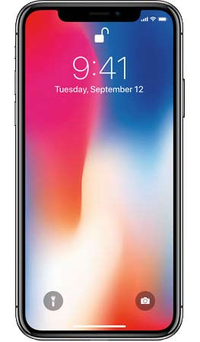iPhone X vs. OnePlus 5T: How Much Does An Extra $500 Get You?
The OnePlus 5T is the year's best smartphone value, while the iPhone X is the most expensive phone on the market. It's time to find out if Apple's latest flagship is really twice as good.
Editors' Note: Since we published this face-off, it's come to light that the OnePlus 5T has an issue streaming Netflix in HD. We've updated the article to address this issue in the Performance section.
The words "flagship killer" tend to pop up frequently in reference to OnePlus' phones, which aim to bring top-tier performance to devices that cost hundreds of dollars less than others touting equal specs. Usually, these OnePlus phones aim to compete with the latest handsets from Samsung, LG or Google –– pricier Android phones that sport similar materials, designs and features.
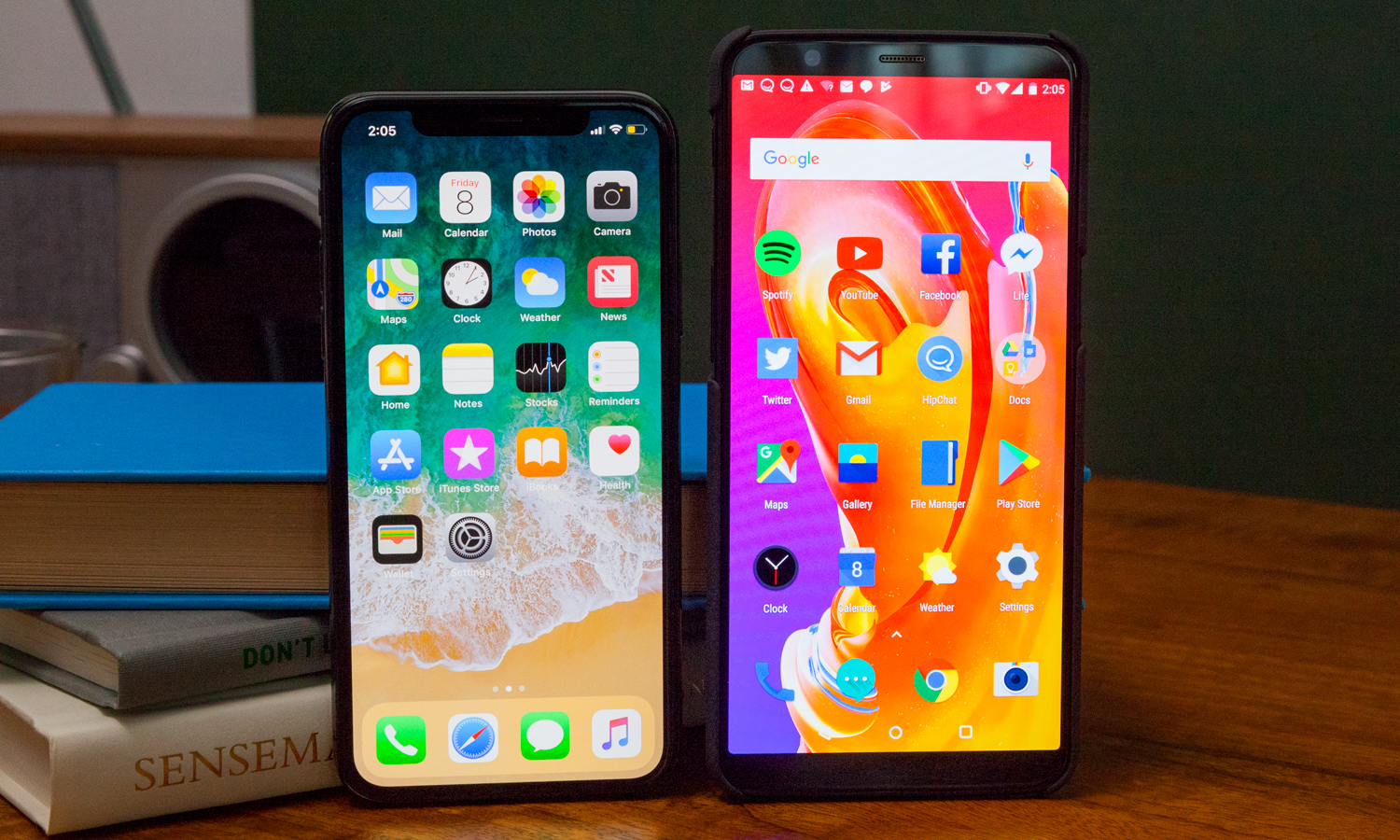
But the iPhone X is a far cry from those run-of-the-mill smartphones, including Apple's previous products. It looks, feels and works nothing like the just-released OnePlus 5T, and it certainly doesn't cost the same.
In fact, the iPhone X costs twice as much as the OnePlus 5T: $999 versus $499. While it's true that you get more with the iPhone, spending double is a tall ask, especially if you can't be convinced that the iPhone offers double the value. In this comparison, we'll sort out what exactly you stand to lose by going with the cheaper handset, and whether Apple's gem is really worth all that extra dough.
| Row 0 - Cell 0 | iPhone X | OnePlus 5T |
| Price | $999/$1,149 | $499/$549 |
| OS | iOS 11.2 | Android 7.1.1 Nougat with Oxygen OS |
| Screen Size (Resolution) | 5.8-inch (2436 x 1125) Super Retina OLED | 6-inch (2160 x 1080) AMOLED |
| CPU | Apple A11 Bionic | Qualcomm Snapdragon 835 |
| RAM | 3GB | 6GB/8GB |
| Storage | 64GB/256GB | 64GB/128GB |
| microSD Slot | No | No |
| Rear Camera | Dual 12-MP (f/1.8, f/2.4) | Dual 16-MP (f/1.7) and 20-MP (f/1.7) |
| Front Camera | 7-MP TrueDepth | 16-MP (f/2.0) |
| Battery Life (Hrs:Min) | 10:49 | 11:03 |
| Water Resistance | IP67 | No |
| Size | 5.7 x 2.8 0.3 inches | 6.1 x 2.9 x 0.3 inches |
| Weight | 6.1 ounces | 5.7 ounces |
Design
There's no avoiding it: The OnePlus 5T is very handsome for a smartphone in 2017, but the iPhone X is where we're headed.
Regardless of whether you side with #teamnotch, there's something entrancing about the way the iPhone X's screen follows the contours of its form. It's not that the iPhone lacks bezels –– it's that they aren't where you expect them to be, and the compactness of the whole package makes it easier to use the phone with one hand. The OnePlus 5T is a fine-looking handset as well, but it can't help coming off a little generic.
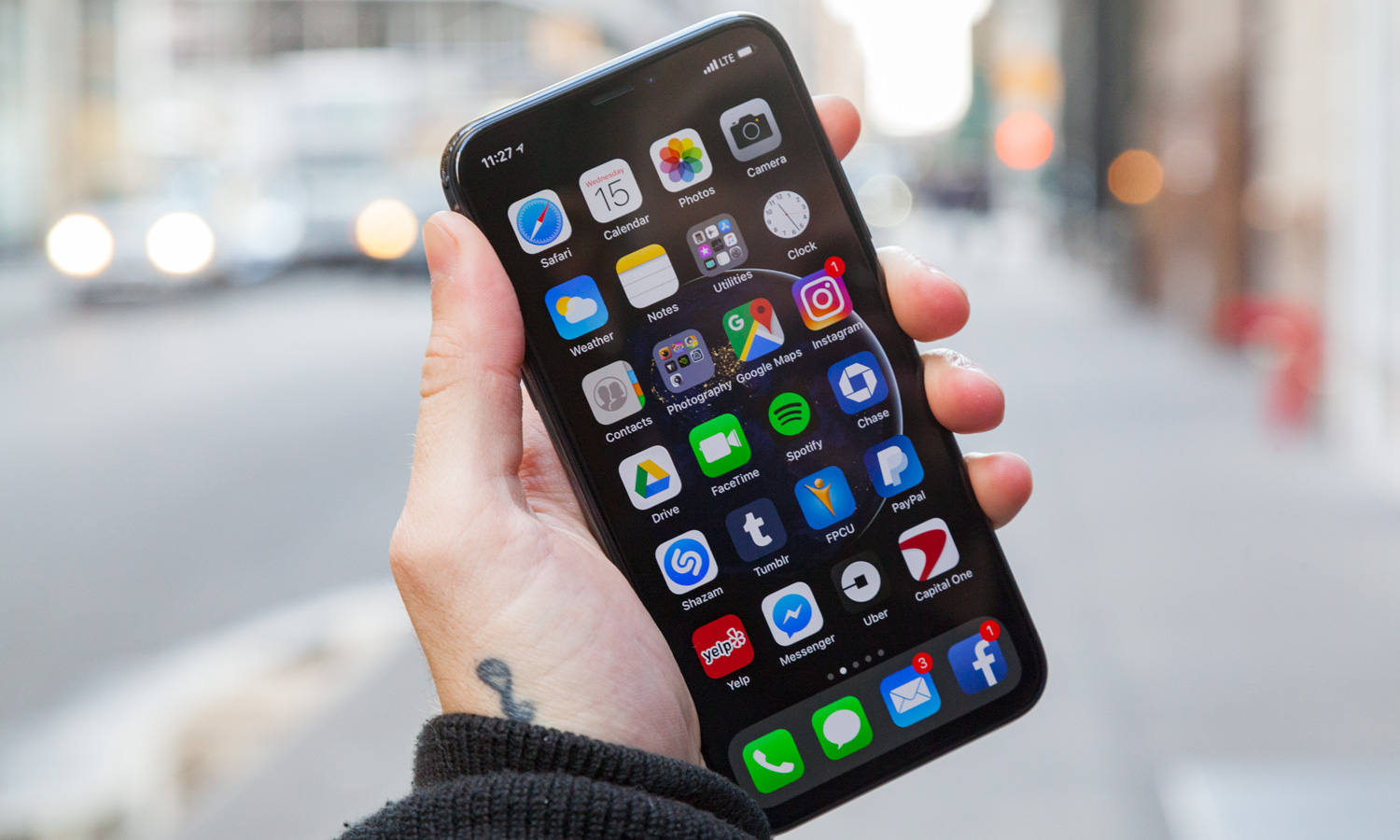
Whereas the OnePlus 5T is a slab of aluminum clad in matte black, the iPhone X shines with its mirrored curved edges and glossy backside. Apple's decision to go with glass rather than metal makes the phone less durable and actually makes the phone look cheaper than the iPhone 7 from certain angles. However, it does enable wireless charging, which you won't find on OnePlus' device. The iPhone X also benefits from true IP67 water resistance; in comparison, the 5T can withstand splashes but not dunks.
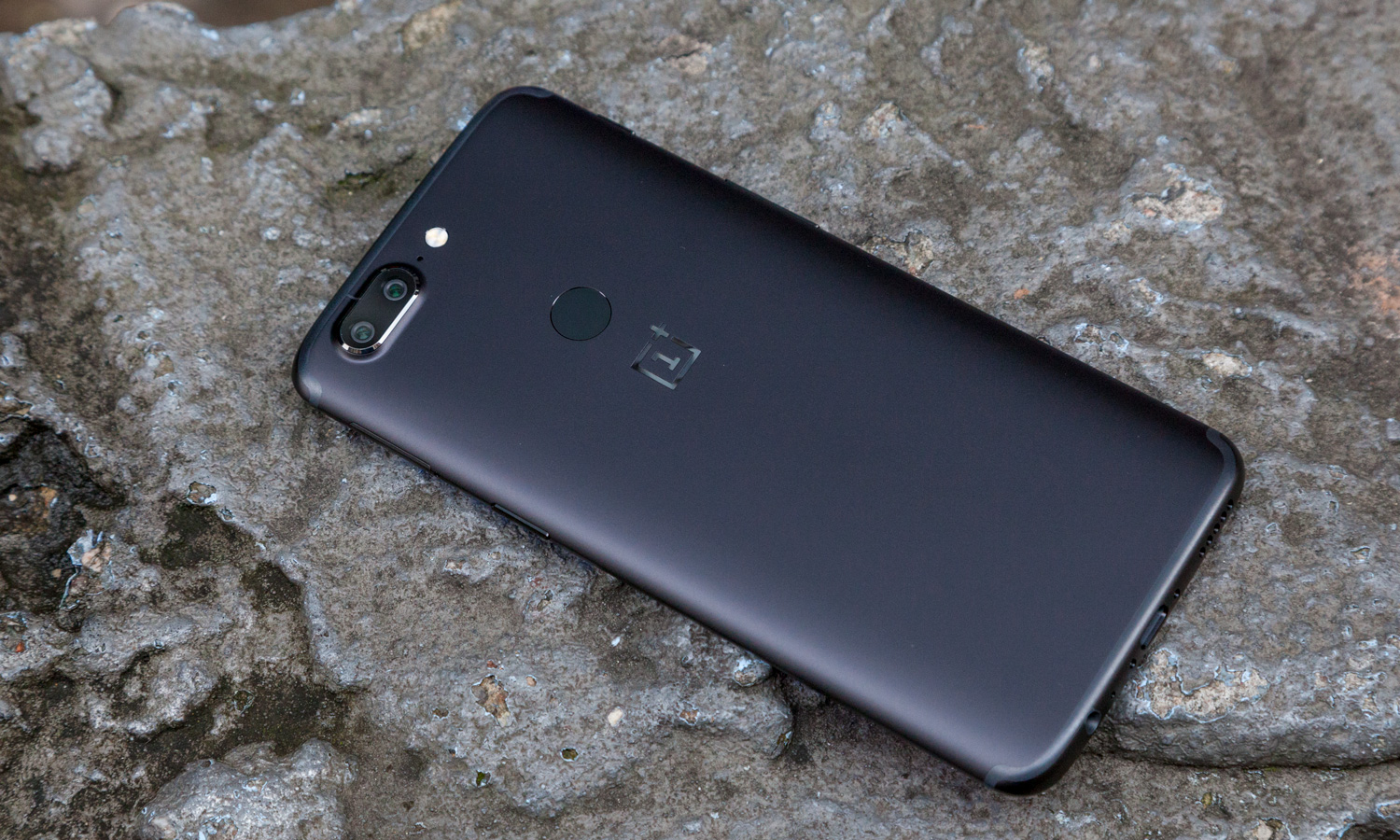
The OnePlus 5T doesn't enjoy the iPhone X's level of distinctiveness. With a circular home button placed on the back and a pair of dual cameras notched horizontally in the top left, it looks like a mishmash of different Android phones. And although it certainly feels well-made and the metal finish is satisfying to the touch, it's no breakthrough in design.
Winner: iPhone X
Display
Both devices pack massive displays despite their size. The iPhone X's 5.8-inch OLED panel touts a resolution of 2436 x 1125, making for a pixel density of 458 ppi. The OnePlus 5T's screen is also OLED and a bit larger, at 6 inches. However, with a slightly lower resolution of 2160 x 1080, it measures only 401 ppi.
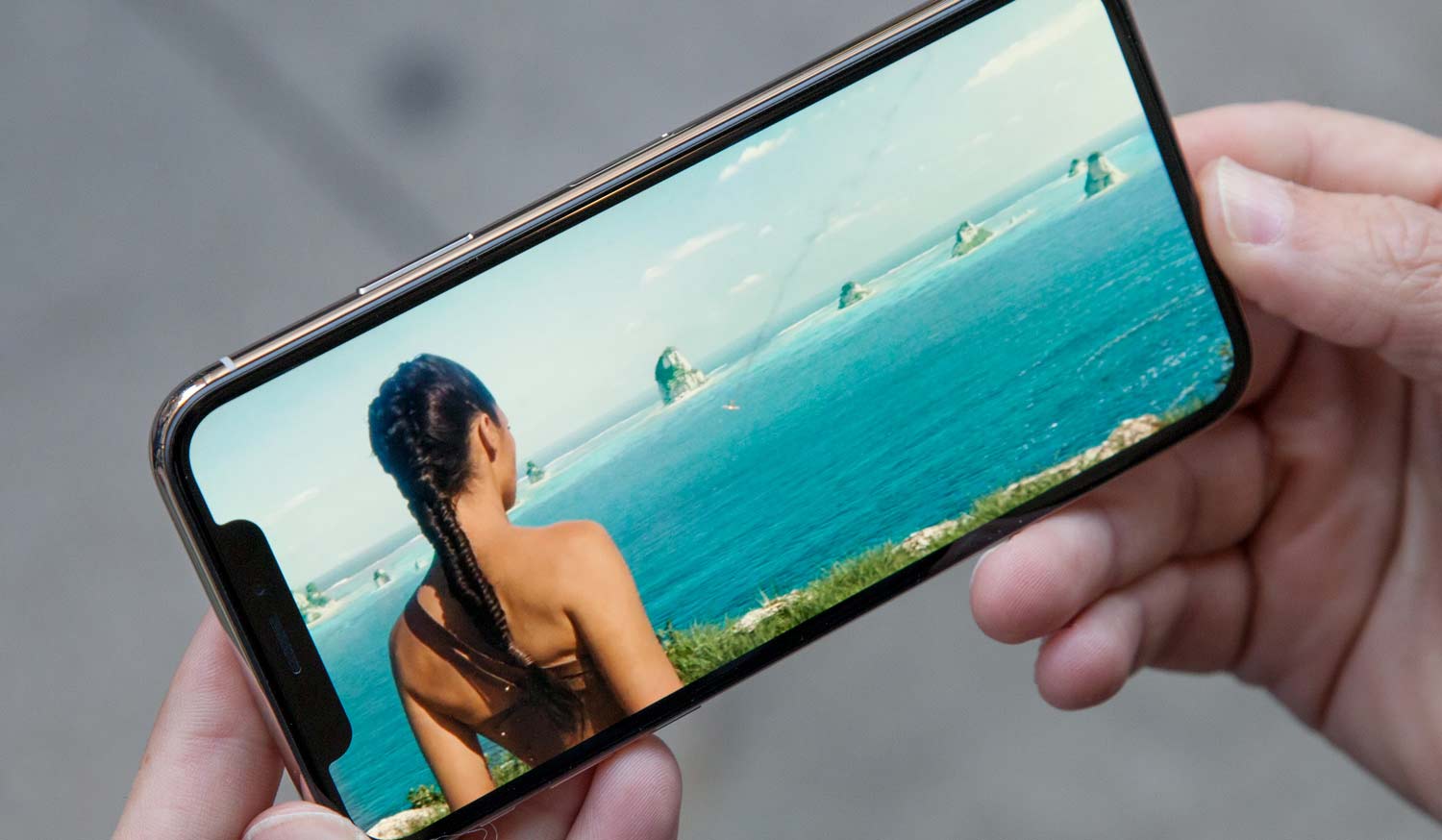
This means the iPhone's display is just a tad sharper. And thanks to Apple's superior color tuning, the iPhone X panel displays colors that are a bit more realistic. Like many devices today, the OnePlus 5T packs a multitude of color modes, some more saturated than others. Apple doesn't give you that choice with the iPhone X, but then again, it doesn't have to. The iPhone X's screen is so supremely bright, crisp and balanced that it's the best display you'll find on a smartphone this year.
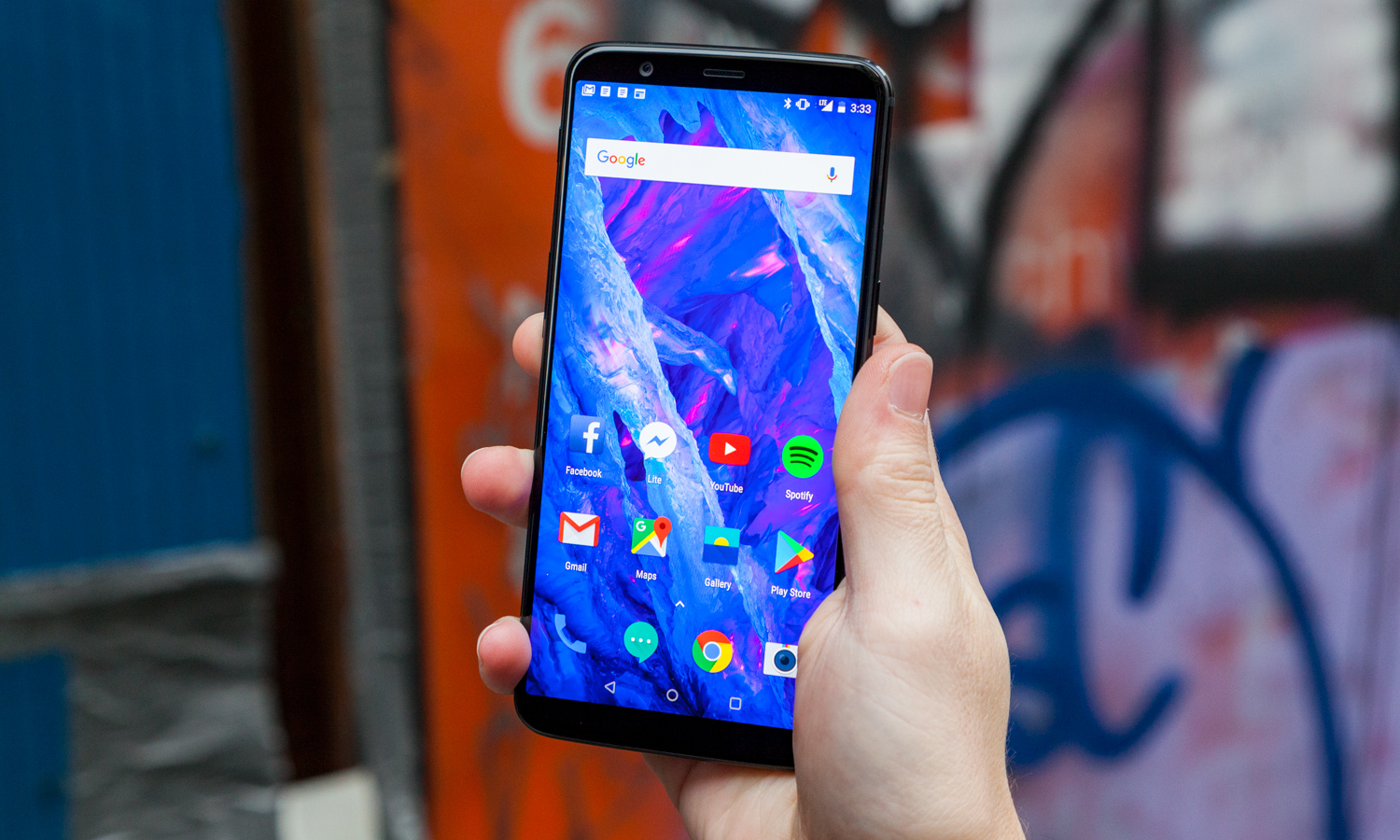
That's not to say OnePlus faltered with the 5T's screen, which is excellent for such a comparatively inexpensive device. Its colors and viewing angles easily outclass those of the Google Pixel 2 XL and the LG V30, two otherwise excellent flagship handsets. But at 394 nits, the 5T's screen is only adequately bright; at 574 nits,the iPhone X trounces it.
Winner: iPhone X
Cameras
Apple's dual-camera system has led the way in mobile photography since the iPhone 7 Plus launched last year, and the iPhone X touts the latest evolution of that design. The iPhone X combines two 12-megapixel sensors with optical image stabilization. The secondary lens is a telephoto one with a narrow field of view and shallow focus, making it ideal for portraits. The pairing of the two cameras on the iPhone X enables a 2x optical zoom.
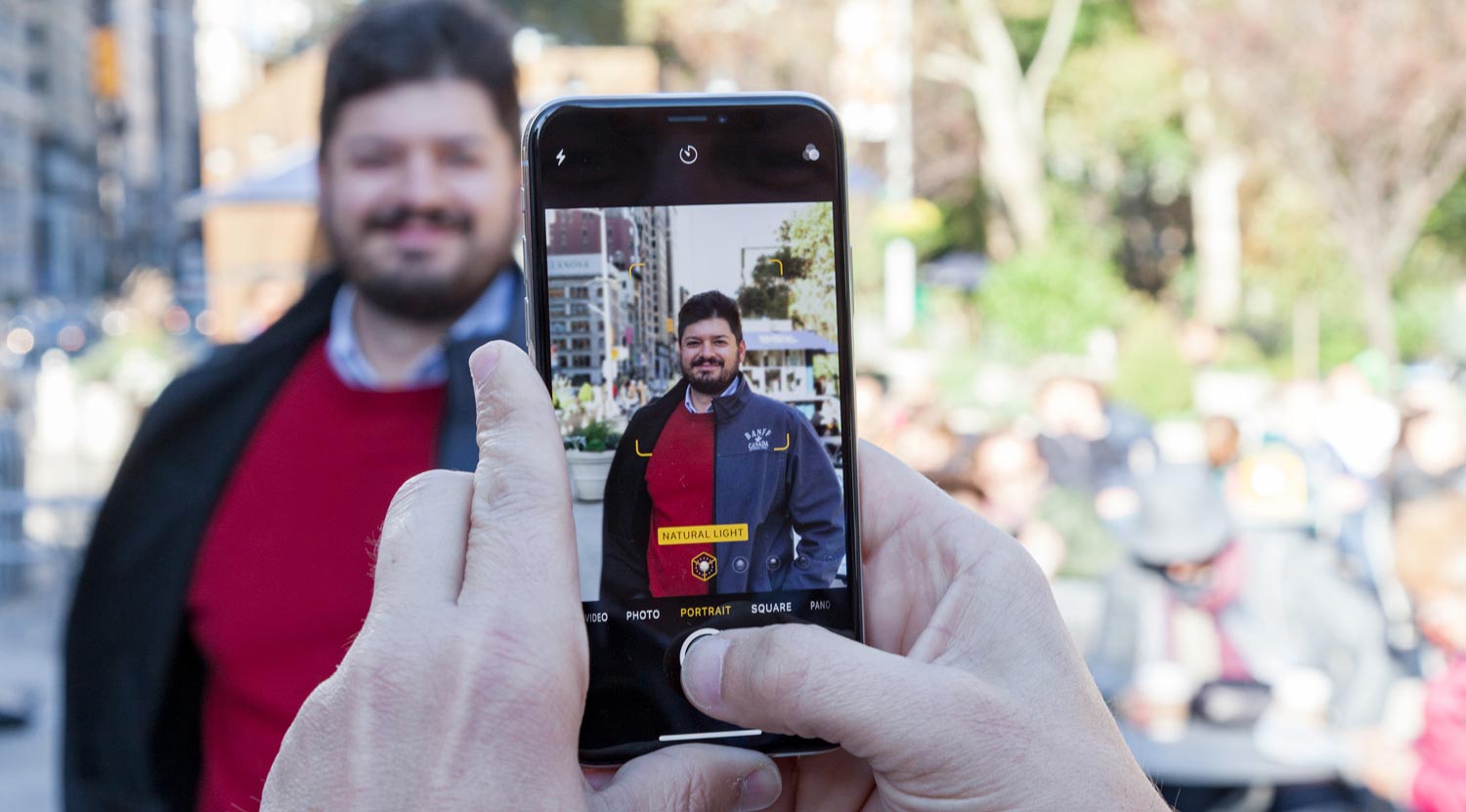
The OnePlus 5T's dual cameras are actually a step back from the arrangement in the OnePlus 5. The new phone omits the telephoto lens in favor of a more conventional wide-angle 20-megapixel lens, while the standard lens is rated at 16 MP.
Both cameras have slightly larger apertures than the iPhone X's cameras, at f/1.7, but the move away from the secondary telephoto lens means that, unlike its predecessor, the OnePlus 5T cannot deliver optical zoom, putting it at a significant disadvantage when it goes up against the iPhone X.
In this first comparison outside a flower stand, the OnePlus 5T surprisingly takes the fight to the iPhone X with vivid colors and remarkable clarity. While the 5T exhibits a slightly cooler cast and some of the darker details aren't as readily visible, the significantly cheaper phone wasn't that far off the mark.
However, the gap widens as we turn to this scene outside New York's Union Square. The iPhone X simply delivers a more balanced exposure all around, with fewer blown-out highlights and murky shadows. The sky is a deeper shade of blue, and the increased sharpness is especially apparent in the texture of the asphalt. But most important, the iPhone X avoided the lens flare that dominates the right half of the frame in the OnePlus' photo.
Despite the OnePlus 5T's superior aperture, the iPhone X also won out in this indoor scene at a furniture store, thanks to its more accurate white point and overall brighter exposure. The texture of the wooden table is a little clearer in the iPhone's rendition as well.
Finally, rounding out the photography round is this demonstration of Portrait Mode on both phones. While the rear cameras were used for this example, it's important to note that the iPhone X can also manage portrait-style shots via its front-facing TrueDepth camera system as well. The OnePlus 5T is not as well equipped for selfies.
Because there's no telephoto lens on the OnePlus 5T, you have to physically move much closer to the subject to achieve the same effect as the iPhone X's optical zoom. But even then, you're still essentially taking a portrait with a wide-angle lens, meaning the foreground and background lack the spatial compression that provides the kind of intimacy you're looking for in a real portrait.
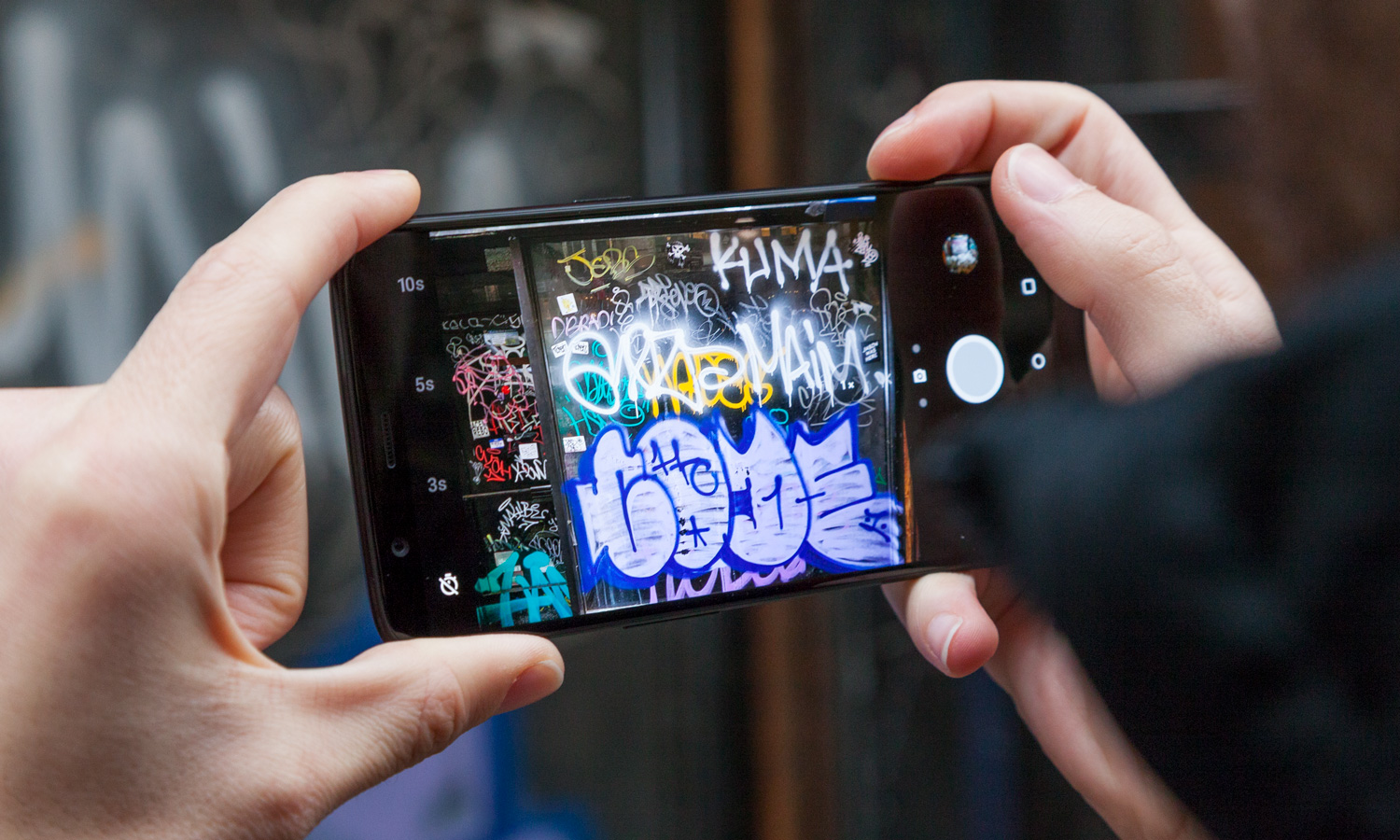
Even though the OnePlus 5T clouds the background with a satisfying bokeh effect, it's still amiss. The frame is simply too wide, so my colleague Shaun's face is a bit blurrier in the photo. I also prefer the contrast in the iPhone's photo, which makes it easier to pick up the texture of Shaun's hoodie, though the end result is definitely a little noisier than what the OnePlus 5T gives you.
Winner: iPhone X
Performance
Compared to the current crop of Android devices, the OnePlus 5T is indeed very powerful. Featuring Qualcomm's Snapdragon 835 processor alongside a minimum of 6GB of RAM (an 8GB model is available for an additional $60), the 5T is, at least on paper, better suited for multitasking than the iPhone X, which features only half the memory.
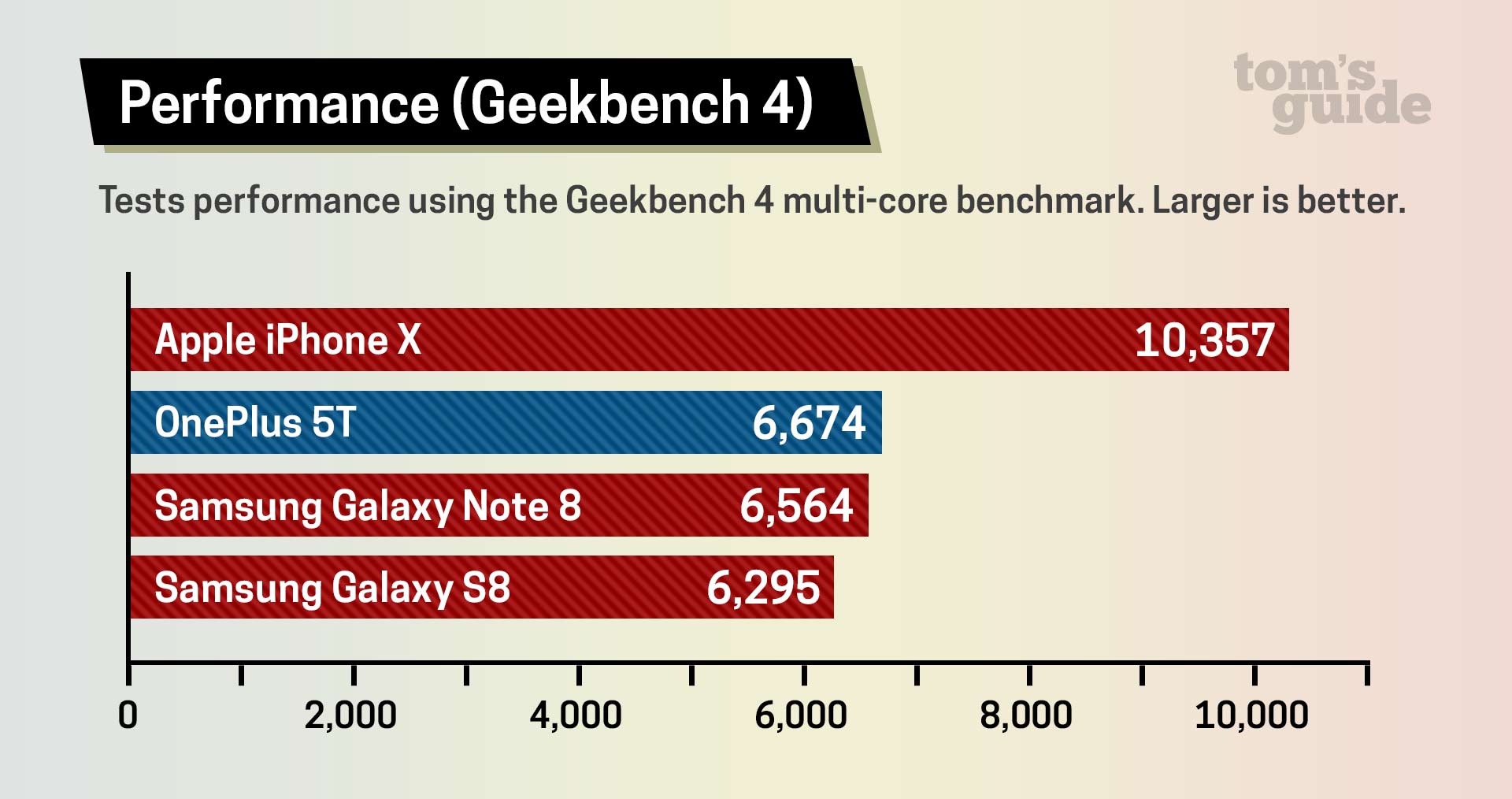
But benchmarks have shown that the A11 Bionic system-on-a-chip that powers the iPhone X and iPhone 8 is light-years faster than Qualcomm's current efforts. The iPhone X slaughtered the competition in Geekbench 4, registering a score of 10,357, while the OnePlus 5T managed 6,674. That's good enough to edge out Samsung's Galaxy Note 8 — an impressive achievement in its own right — but the OnePlus 5T's speed simply can't compare to the iPhone's pace.
One performance issue we should note: The OnePlus 5T can't stream Netflix in HD as of this writing. OnePlus says it's planning a software fix that will restore the DRM technology needed to support HD streaming, but it's worth taking this into consideration if you're looking to buy a phone right now.
Winner: iPhone X
Special Features
The iPhone X arrives with this year's killer feature: true, three-dimensional facial recognition and tracking that are secure enough to unlock your phone and authenticate payments, and accurate enough to turn your face into an animated emoji.
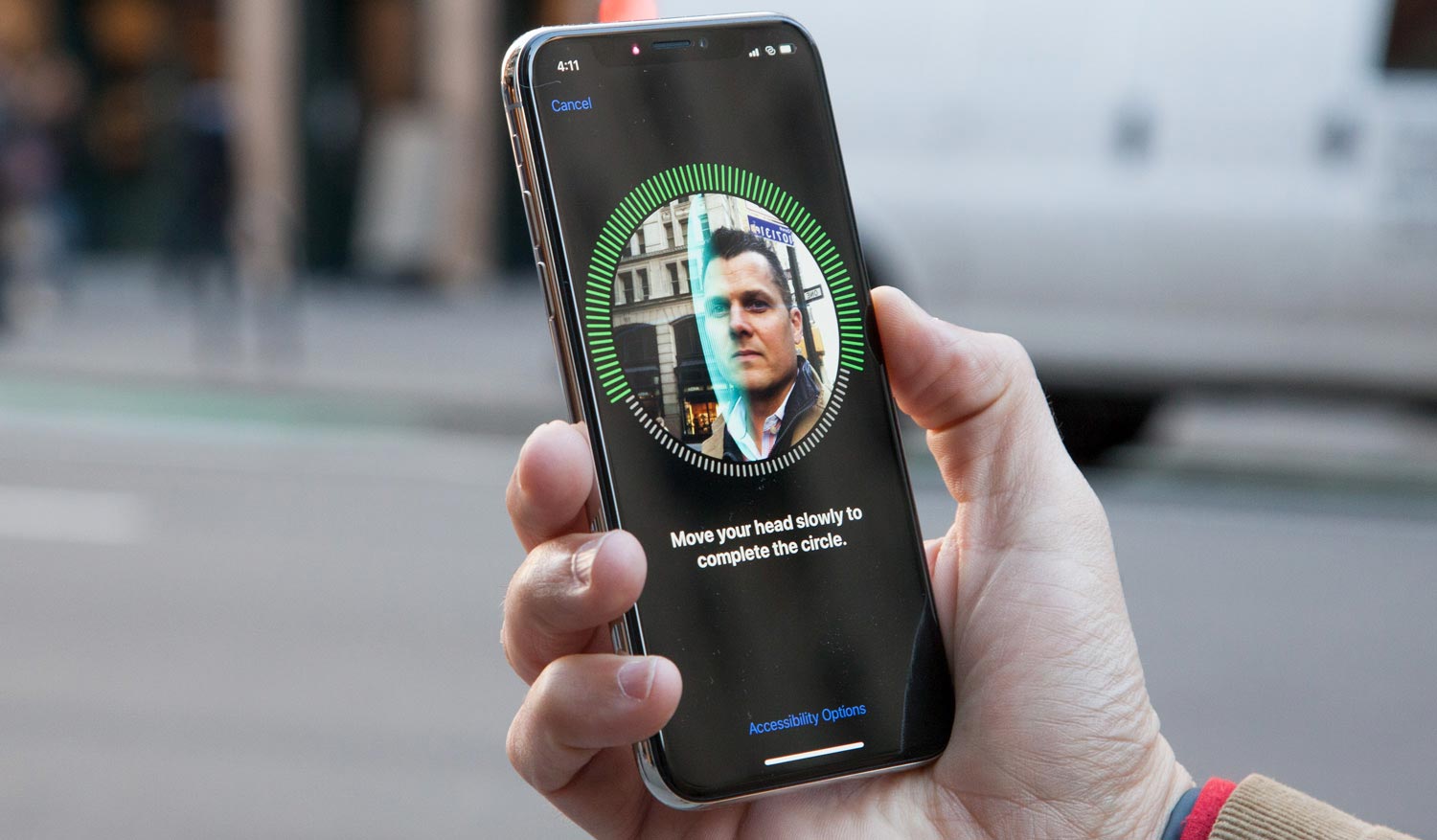
The OnePlus 5T doesn't have anything on that level, though OnePlus did seize the opportunity to bring an improved Face Unlock feature to Android that builds on Google's existing Trusted Face system. OnePlus' technology simply utilizes the typical front-facing camera on the 5T, and works entirely in 2D –– meaning technically, it could be spoofed by a photograph.
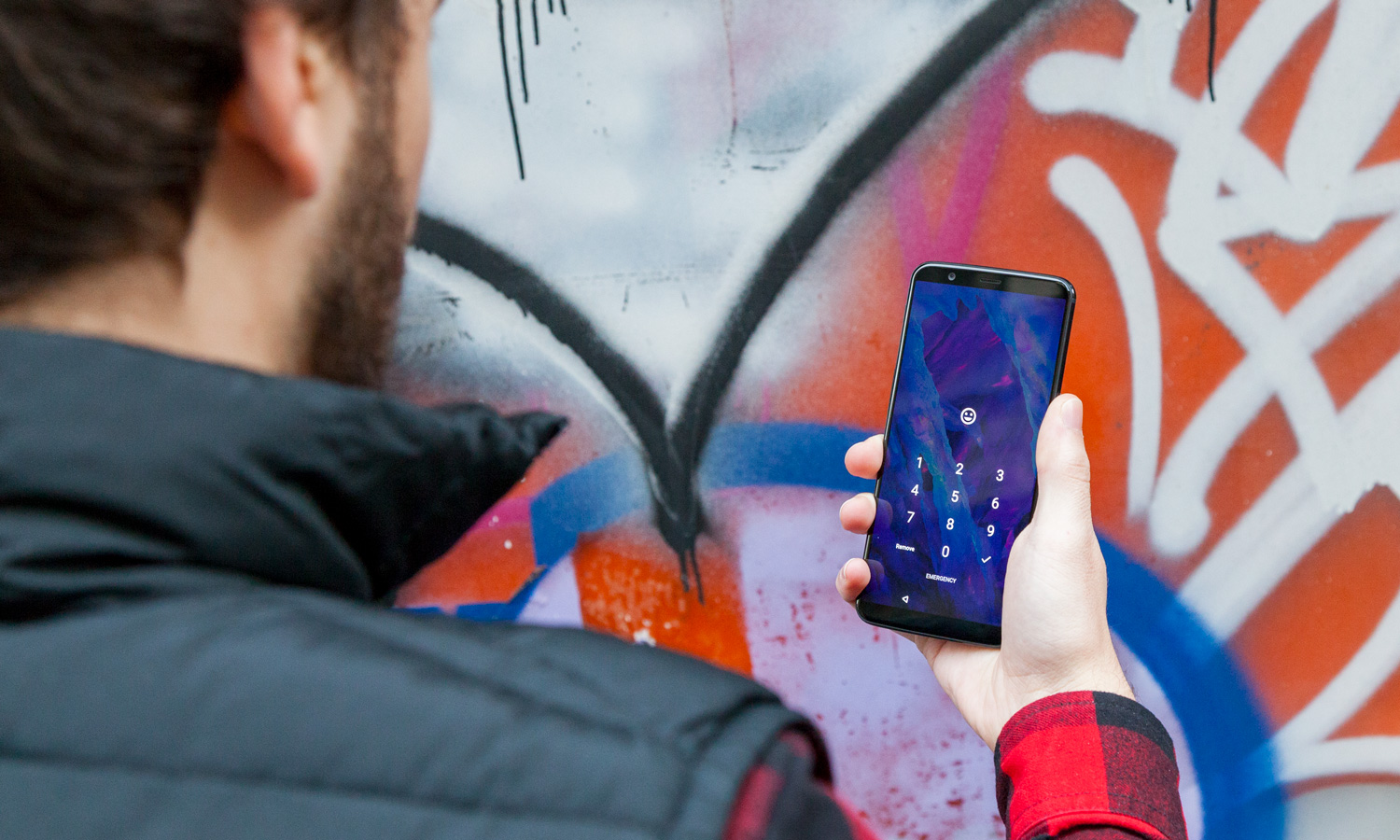
OnePlus is aware of this, which is why the company restricted its facial-recognition feature to unlocking the device. However, Face Unlock is very, very fast and even works in poor lighting, making it the best form of facial recognition we've come across short of Apple's Face ID.
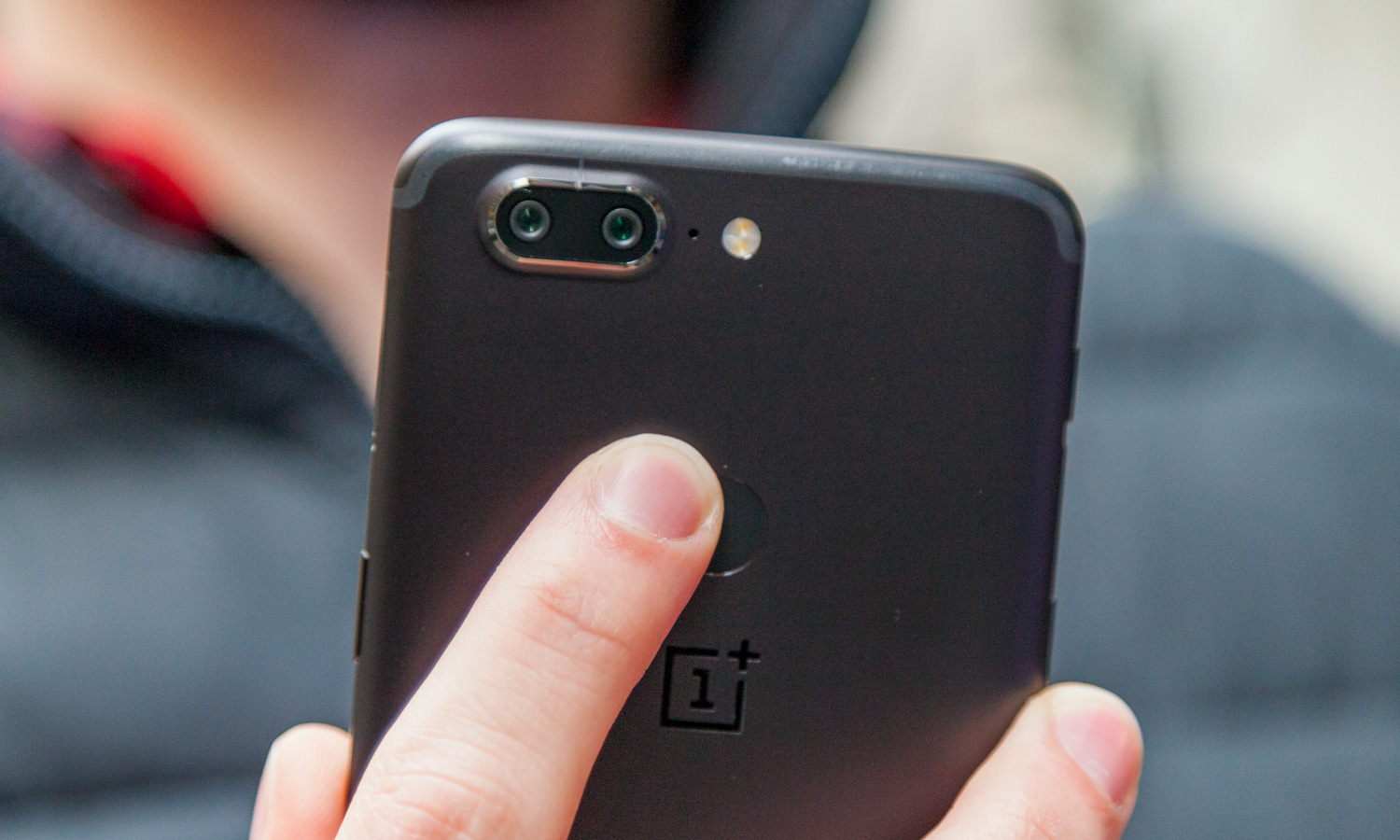
What the OnePlus 5T does have, however, is a fingerprint sensor, which Apple unceremoniously ditched for the iPhone X. It also has a 3.5-millimeter headphone jack, which is becoming so rare in the flagship market that it qualifies as a special feature now. OnePlus' OxygenOS also adds some helpful features to stock Android, like the ability to set passwords to launch certain apps and a paper-like Reading Mode that renders content in gray scale so that it's less harsh on the eyes.
MORE: Best Cheap Unlocked Smartphones
Meanwhile, iOS 11 leverages the excellent cameras in the latest iPhones to deliver an improved augmented-reality experience; boasts notable enhancements to Apple Maps, Messages, Photos and Siri; and includes a built-in money-transfer service built on the foundation of Apple Pay.
Winner: Tie
Battery
Both devices outlast the average smartphone, though you'll find longer-lasting devices out there. Still, in our testing, the OnePlus 5T did outlast the iPhone X, delivering a time of 11 hours and 22 minutes, compared with 10 hours and 49 minutes for Apple's handset.
Still, this round goes to the OnePlus 5T for a number of other reasons, too. The Dash Charge technology featured in the included adapter got our 5T up to 59 percent in just 30 minutes, and up to 93 percent in an hour.
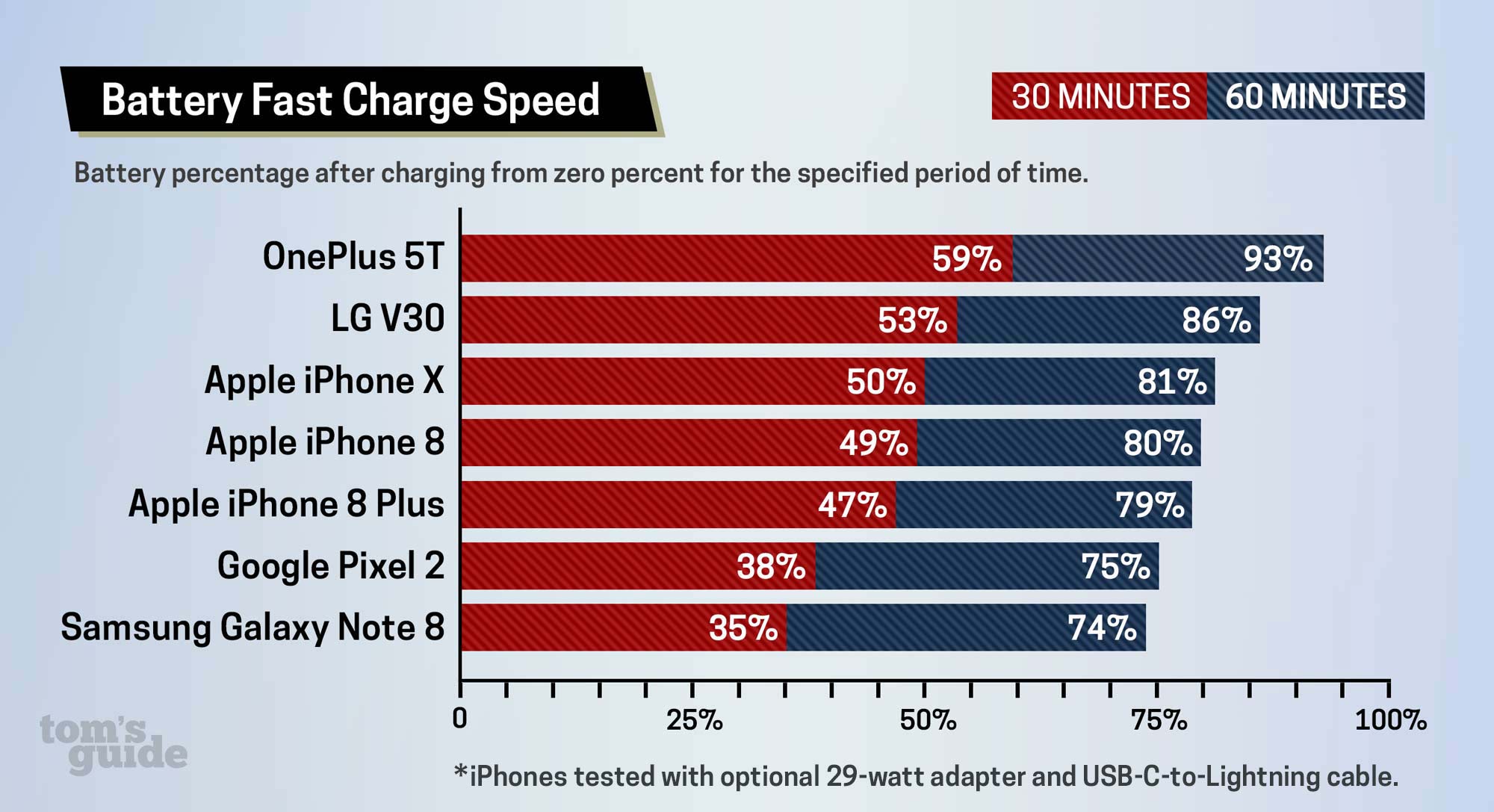
The iPhone X can get close to that, delivering 50 percent and 81 percent in 30 and 60 minutes, respectively –– but only if you shell out extra cash for Apple's fast charging solution, which requires you to spend $49 on a USB-C adapter and then another $25 on a USB-C-to-Lightning cable. That's absurd for a phone that already costs a grand, and with the packaged gear, you'll find the iPhone X will reach only about 17 percent and 37 percent, respectively, in the same time frames. That's despite the fact that the iPhone's battery is significantly smaller than the one in the 5T: 2,716 mAh versus 3,300 mAh.
MORE: Smartphones with the Longest Battery Life
But the iPhone X has a trick up its sleeve: Its glass back allows for wireless charging, which the OnePlus 5T can't equal. However, this will again command extra money on top of the initial price of the phone, as you'll have to spend extra cash on either a Qi charger or Apple's intelligent and faster AirPower pad, which is not available yet but will assuredly carry a higher price tag than third-party alternatives.
Winner: OnePlus 5T
Value and Availability
The OnePlus 5T takes this category, but not by as much as you might figure. Although it costs half as much as the iPhone X –– $499 versus $999 –– it's GSM-only, which means it's not supported by two of America's big four wireless networks. You can't use the 5T on Verizon, Sprint or even smaller carriers that operate on the CDMA standard, like Boost Mobile. That's an unavoidable barrier to purchasing OnePlus' latest handset, no matter how much cheaper it is.
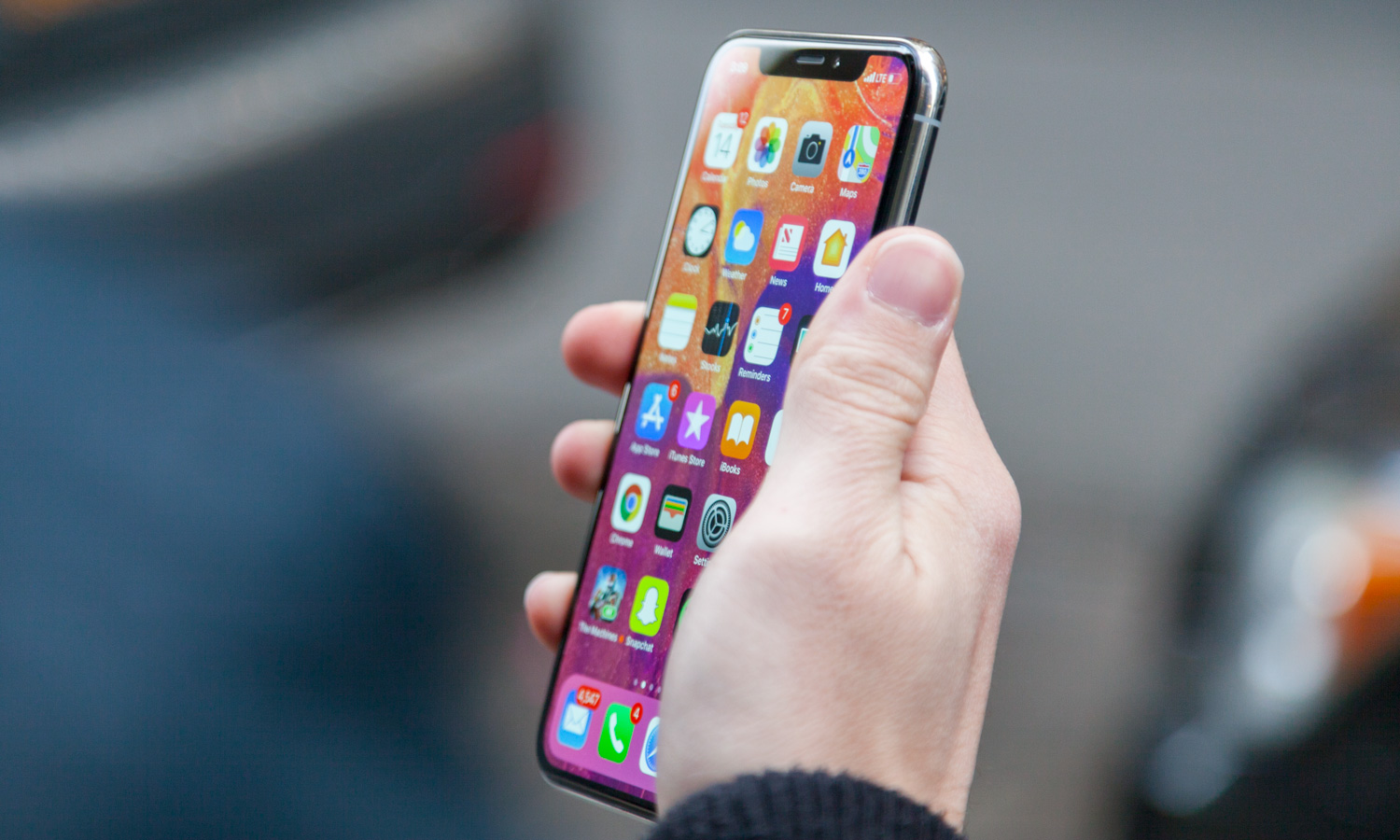
But the big question is, what do you lose in opting for the 5T? The iPhone's superior design, display, cameras, performance and, of course, Face ID headline the list of answers. For some, those are tall concessions to make, though it bears repeating that the OnePlus 5T isn't hopeless in those departments, either, and for that reason, it still wins the value battle.
Winner: OnePlus 5T
Overall Winner: iPhone X
The iPhone X's price tag may be a tough pill to swallow, but it is offset by a wealth of new and class-leading features, and owners will definitely get what they pay for.
That’s no disrespect to the OnePlus 5T, which is a fantastic smartphone that sets a new bar for value. If you've got only about $500 to spend and subscribe to a carrier that supports this phone, you shouldn't think twice about picking it up –– it really is amazing what the company has achieved for the low cost.
| Row 0 - Cell 0 | iPhone X | OnePlus 5T |
| Design (10) | 9 | 7 |
| Display (15) | 15 | 12 |
| Cameras (20) | 19 | 15 |
| Performance (10) | 10 | 8 |
| Special Features (10) | 7 | 7 |
| Battery (20) | 15 | 18 |
| Value (15) | 7 | 13 |
| Overall (100) | 82 | 80 |
But the OnePlus 5T doesn't represent anything new in the smartphone realm, which is why the iPhone X has us so excited and has captured the public's enthusiasm. Every time I have an iPhone X on my desk, at least one co-worker stops and asks me about it. It's the ultimate conversation starter, and for good reason. Provided you can afford it, the iPhone X will wow you with its camera, dazzle you with its display and, thanks to its killer performance, last you for years to come.
Credit: Tom's Guide
Sign up to get the BEST of Tom's Guide direct to your inbox.
Get instant access to breaking news, the hottest reviews, great deals and helpful tips.
Adam Ismail is a staff writer at Jalopnik and previously worked on Tom's Guide covering smartphones, car tech and gaming. His love for all things mobile began with the original Motorola Droid; since then he’s owned a variety of Android and iOS-powered handsets, refusing to stay loyal to one platform. His work has also appeared on Digital Trends and GTPlanet. When he’s not fiddling with the latest devices, he’s at an indie pop show, recording a podcast or playing Sega Dreamcast.
-
a2002zx2driver You are wrong on the displays, you posted the oneplus 5T has an OLED screen when if you look at the specs again you will see the iPhone has the OLED screen and the OnePlus 5t has AMOLED.Reply
